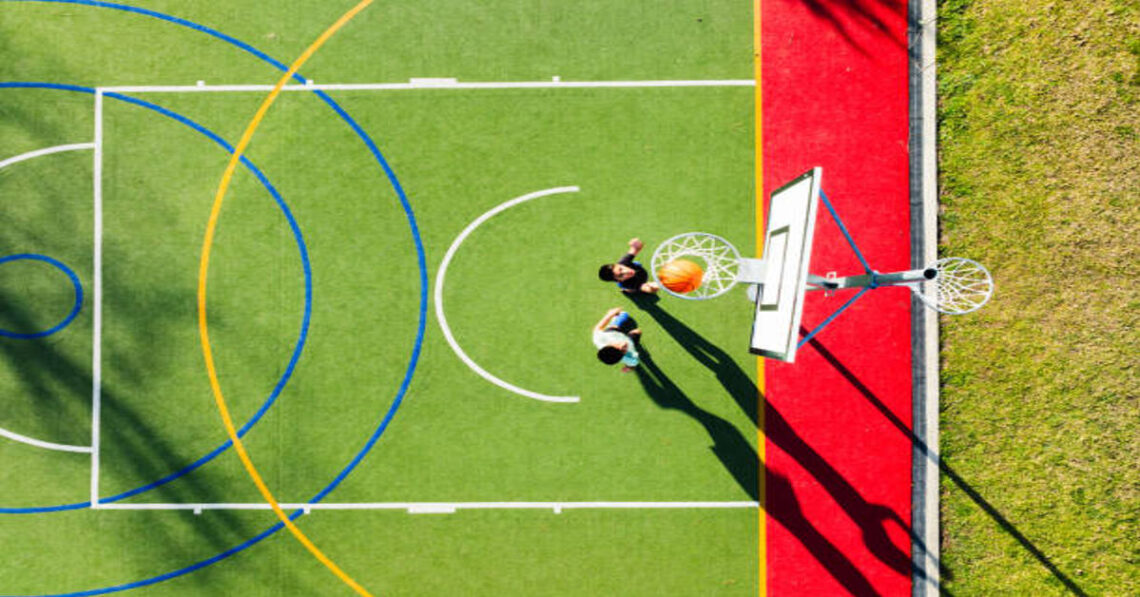Basketball is more than just a sport that involves shooting hoops, dribbling, and defending. It’s an emotional experience, a lifestyle, and for many, a family. Among players, there exists a bond often referred to as the “Basketball Bros” connection — a relationship that transcends competition and unites people through shared goals, trust, and respect. This term doesn’t just describe teammates; it reflects a culture of mutual support, accountability, and passion for the game that shapes personal growth and lifelong friendships.
In this article, we’ll dive deeply into what the phrase “Basketball Bros” means, how it develops, its impact on players both mentally and physically, and how this unique brotherhood continues to influence communities worldwide. From pickup games in local parks to professional teams in the NBA, the essence of being a basketball bro remains the same — it’s all about loyalty, teamwork, and love for the game.
1. What Does “Basketball Bros” Mean?
The phrase Basketball Bros refers to the close-knit camaraderie shared between players who bond through the sport. These relationships aren’t limited to teammates; they include training partners, rivals who push each other, and even coaches who act as mentors and friends.
It’s a dynamic built on mutual respect — when you trust someone to have your back on the court, that trust often extends beyond the game. The term “bros” symbolizes brotherhood: not just by blood but by shared experiences, sweat, and effort.
A basketball bro might be the friend who stays late to help you practice free throws, the teammate who passes you the ball for the winning shot, or even the competitor who pushes you to become better. These relationships form the social fabric of the sport and are essential to its soul.
2. The Core Values Behind Basketball Brotherhood
The Basketball Bros culture thrives on several key values that define how players interact, learn, and grow together. Each value builds upon the other, creating a unified foundation that keeps the bond strong both on and off the court.
| Core Value | Meaning in Basketball | Effect on Team Culture |
|---|---|---|
| Trust | Believing teammates will fulfill their roles | Creates reliability and confidence |
| Communication | Constant on-court and off-court dialogue | Improves coordination and understanding |
| Respect | Valuing others’ skills and efforts | Reduces conflict, strengthens unity |
| Discipline | Commitment to practice and team rules | Builds consistency and focus |
| Brotherhood | Emotional connection beyond the game | Encourages lifelong friendship |
Basketball is a sport of rhythm and reaction. Without trust, communication, and discipline, even the most skilled teams fall apart. The “brotherhood” aspect ensures that players aren’t just chasing points but supporting one another through wins, losses, and challenges.
3. How Basketball Builds Brotherhood
The game’s very structure encourages teamwork and connection. Players must cooperate, make split-second decisions, and rely on one another. Over time, this interaction creates an unspoken language — a chemistry that feels natural and instinctive.
Shared Challenges
Basketball bros often grow closer through struggle. Grueling training sessions, close losses, and long seasons test their endurance and emotions. These shared hardships strengthen emotional bonds, making victories even more meaningful.
Mutual Growth
Every player has a unique strength — some excel at defense, others at leadership or scoring. When these abilities complement each other, players not only improve their own game but also elevate their brothers’. Growth becomes collective.
Off-Court Relationships
The brotherhood doesn’t end with the final buzzer. Teammates often hang out, share meals, or celebrate together. These moments outside the game reinforce empathy, trust, and lasting friendship.
4. The Mental and Emotional Impact of Basketball Bros
Being part of a basketball brotherhood offers immense psychological benefits. It enhances mental resilience, emotional balance, and a sense of belonging — all essential for personal development.
a) Emotional Support
When you lose a tough game or face a personal struggle, your basketball bros are often the first to check on you. This emotional safety net can help reduce stress and foster positive mental health.
b) Motivation and Accountability
Training can be exhausting, but when you’re surrounded by teammates who push you to give your best, laziness fades. Basketball bros encourage accountability — when one slacks off, others step up to remind him of shared goals.
c) Confidence and Self-Esteem
Encouragement from teammates during tough matches boosts self-belief. Players feel valued not just for their skills but for their contribution to the team dynamic.
5. Basketball Bros and Team Chemistry
Team chemistry is often the difference between good teams and great ones. It’s the invisible bond that makes plays flow effortlessly and communication seamless. Basketball bros embody this chemistry.
Players who understand each other’s tendencies develop what’s often called “court intuition.” For example, a point guard may instinctively know when his shooting guard is ready for a pass, or a center might anticipate a rebound based on a teammate’s shot angle.
Such harmony doesn’t come from drills alone; it grows from shared experiences and emotional connection.
| Element of Team Chemistry | How Basketball Bros Contribute |
|---|---|
| On-Court Communication | Use of eye contact, signals, and nonverbal cues |
| Support During Slumps | Encouraging teammates after missed shots |
| Shared Celebrations | Strengthening unity through joy |
| Handling Conflict | Open conversations and forgiveness |
| Leadership Rotation | Everyone leads in different moments |
Without chemistry, talent becomes scattered. Brotherhood unites that talent into synchronized teamwork.
6. The Role of Leadership in Basketball Brotherhood
Leadership in basketball isn’t limited to captains or coaches. In the Basketball Bros culture, every player has a leadership role — whether it’s inspiring through effort, motivating through words, or supporting through silence.
a) Verbal Leaders
These players speak up during games, call plays, and rally the team during breaks. They often set the tone for communication.
b) Emotional Leaders
They keep morale high, calm teammates during pressure, and remind everyone why they love the game.
c) Example Leaders
Quiet yet powerful, they lead through consistent discipline, effort, and performance. Their actions inspire others to follow.
The best teams are those where leadership is shared — where each bro uplifts the other.
7. Basketball Bros in Youth Development
In youth basketball, the concept of brotherhood teaches values that extend far beyond the court. For teenagers, basketball bros often become their closest friends, mentors, and motivators.
Life Lessons Gained:
- Teamwork: Understanding how collective effort achieves goals.
- Empathy: Supporting friends during setbacks.
- Discipline: Learning time management between school and sport.
- Resilience: Bouncing back from defeats.
- Respect: Appreciating diverse skills and backgrounds.
Youth programs that emphasize camaraderie help young athletes grow into confident, respectful adults — whether or not they pursue professional basketball.
8. Brotherhood in Professional Basketball
Professional leagues like the NBA or EuroLeague showcase some of the most well-known “basketball bros” relationships. Players often describe their teammates as family, spending years building trust and chemistry that translate into championships.
Examples of legendary basketball brotherhoods include duos and trios who elevated each other’s careers — not just through scoring, but by holding one another accountable and sharing mutual goals.
The professional “bro code” involves respect for opponents, dedication to improvement, and humility in victory. Even fierce rivals often share off-court friendship built on years of mutual respect and competition.
9. The Influence of Coaches and Mentors
Coaches play a huge part in forming basketball brotherhoods. A good coach doesn’t just train skills; they build character, communication, and unity.
Ways Coaches Strengthen Brotherhood:
- Encouraging peer mentoring during drills.
- Fostering open discussions instead of rigid hierarchies.
- Organizing team-building activities beyond games.
- Recognizing each player’s individuality while promoting team goals.
When a coach models respect and empathy, it creates a ripple effect — players mirror that attitude toward each other.
10. Basketball Bros and Cultural Diversity
One of basketball’s greatest strengths is its diversity. Players from different backgrounds, languages, and beliefs come together for a shared love of the game. Brotherhood bridges cultural gaps, teaching players how to communicate and cooperate despite differences.
For example, an international team may include players from five or more countries, yet they unite seamlessly through basketball language — hand signals, passing rhythm, and shared emotions. This diversity enriches the brotherhood, creating global friendships and cultural appreciation.
| Cultural Aspect | Effect on Brotherhood |
|---|---|
| Different Languages | Encourages creativity in communication |
| Varied Backgrounds | Promotes inclusivity and understanding |
| Global Competitions | Builds respect across nations |
| Shared Goals | Erases cultural barriers |
| Traditions and Rituals | Adds meaning and identity to team culture |
Basketball, in essence, becomes a global brotherhood.
11. How Social Media Strengthens Basketball Bros Culture
In the digital age, basketball bros extend their connection online. Social media platforms allow teammates, fans, and players from across the world to stay in touch, share highlights, and motivate one another.
Instagram posts of late-night training, TikTok clips of friendly competitions, or motivational quotes build a sense of community even beyond the gym. Players use digital spaces to celebrate victories and support each other during tough times.
However, maintaining balance is crucial — true brotherhood thrives in real interactions, not just online validation.
12. Fitness and Physical Health Among Basketball Bros
Apart from emotional and mental benefits, basketball bros share a commitment to physical health. Training together creates accountability and improves consistency.
Physical Benefits:
- Cardiovascular endurance from constant motion.
- Muscle strength through jumping, sprinting, and resistance.
- Agility and coordination from dribbling and passing drills.
- Balance improvement through defensive stances.
- Reduced risk of obesity and lifestyle diseases.
When bros train together, they motivate each other to maintain proper nutrition, rest, and recovery — vital for peak performance.
13. Brotherhood in Street and Community Basketball
In local parks and community courts, basketball bros represent a social bond that often transcends social class, age, and race. The pickup games in these settings have their own culture — no contracts, no coaches, just pure love for the game.
Street basketball teaches respect through performance. Players earn credibility through consistency, effort, and fairness. The friendships built here can be stronger than formal team connections because they’re formed purely out of shared passion, not obligation.
These informal communities also act as safe spaces for youth, steering them away from negative influences and giving them a sense of belonging.
14. Basketball Bros and Life Beyond the Game
The lessons learned in basketball brotherhood often apply directly to real life. Whether in a workplace, family, or friendship, former players carry the same teamwork mindset and loyalty.
Life Skills Derived from Basketball Brotherhood:
- Leadership under pressure.
- Emotional intelligence and empathy.
- Time management and discipline.
- Conflict resolution through dialogue.
- Goal setting and perseverance.
When former players enter new phases of life, the bond they once shared with their basketball bros continues in spirit — a reminder of trust, effort, and mutual growth.
15. Gender Inclusivity: Basketball Sisters and Coed Brotherhood
While “Basketball Bros” traditionally refers to male players, the essence of brotherhood also applies to women’s and coed teams. Many female athletes describe similar bonds of sisterhood that mirror the same values — loyalty, teamwork, and emotional connection.
Coed basketball fosters respect between genders, breaks stereotypes, and emphasizes skill over physical differences. The “brotherhood” here becomes a metaphor for unity among all players, regardless of gender identity.
16. Conflict and Forgiveness Among Basketball Bros
Even among close teammates, disagreements happen — missed passes, miscommunication, or emotional frustration can lead to tension. But what separates strong teams from weak ones is how they handle conflict.
Basketball bros learn to forgive quickly and refocus on the goal. Many professional teams use open forums or “team talks” to clear misunderstandings. In this way, basketball teaches emotional maturity and resilience — essential life tools.
| Type of Conflict | Resolution Method | Outcome |
|---|---|---|
| On-court Misunderstanding | Immediate discussion | Restored communication |
| Performance Criticism | Constructive feedback | Improvement without resentment |
| Personal Disagreements | Off-court conversations | Stronger emotional bond |
| Leadership Disputes | Role sharing and respect | Balanced teamwork |
Brotherhood isn’t about being perfect; it’s about growing stronger through imperfection.
17. The Emotional Language of Basketball Bros
True basketball brothers communicate beyond words. Eye contact, gestures, or even silence can carry meaning. When you’ve played together long enough, you understand when your teammate is frustrated, excited, or ready for a big play without needing to speak.
This emotional language — built through shared effort and time — forms the foundation of trust. It teaches empathy, patience, and awareness, qualities that extend into all human relationships.
18. Traditions and Rituals of Basketball Brotherhood
Every team or friend group has its own rituals — pre-game chants, handshake routines, or victory celebrations. These traditions deepen the sense of belonging and identity.
Examples of Common Traditions:
- Group huddles before tipoff.
- Personalized handshakes between teammates.
- Team dinners after tournaments.
- Celebratory songs or phrases.
- Wearing matching gear to symbolize unity.
These small acts may seem simple, but they carry immense emotional power, reminding players that they’re part of something greater than themselves.
19. The Longevity of Brotherhood After Retirement
Even after the final game, basketball bros stay connected for life. Many retired players coach together, start youth programs, or remain friends through shared memories. Their brotherhood evolves — from competition to mentorship and community service.
Some organize charity games or reunions to give back, proving that the basketball bond never fades; it just transforms.
20. The Philosophy of Basketball Bros
At its heart, the Basketball Bros philosophy is simple:
“We rise by lifting each other.”
It’s a mindset that teaches how collective effort breeds success, and how caring for your teammate’s well-being enhances your own.
Being a basketball bro means being loyal, dependable, and motivated — not just on game day, but in everyday life.
Conclusion
The concept of Basketball Bros goes far beyond sport — it’s about unity, empathy, and growth. On the court, it creates seamless teamwork. Off the court, it builds lifelong friendships and character. From community courts to professional arenas, the brotherhood of basketball continues to shape individuals into better players, teammates, and human beings.
Basketball may start with a ball and a hoop, but it ends with something far deeper — a brotherhood that lasts a lifetime.
Frequently Asked Questions (FAQs)
1. What does the term “Basketball Bros” mean?
It refers to the brotherhood and deep connection formed between players who share the same passion, challenges, and teamwork in basketball.
2. How do basketball bros build such strong relationships?
They build them through trust, shared experiences, emotional support, and teamwork both on and off the court.
3. Can basketball brotherhood exist outside professional teams?
Absolutely. Brotherhood often starts in schools, local parks, and community leagues where passion, not fame, unites players.
4. How does basketball brotherhood affect mental health?
It provides emotional support, reduces stress, builds confidence, and fosters a strong sense of belonging and purpose.
5. Is the term “Basketball Bros” limited to men only?
No. The essence of brotherhood applies to all genders — it’s about unity, respect, and shared passion for the game.






